In the given figure the capacitor of plate area A is charged upto charge q. The ratio of elongations (neglect force gravity) in springs C and D at equilibrium position is.
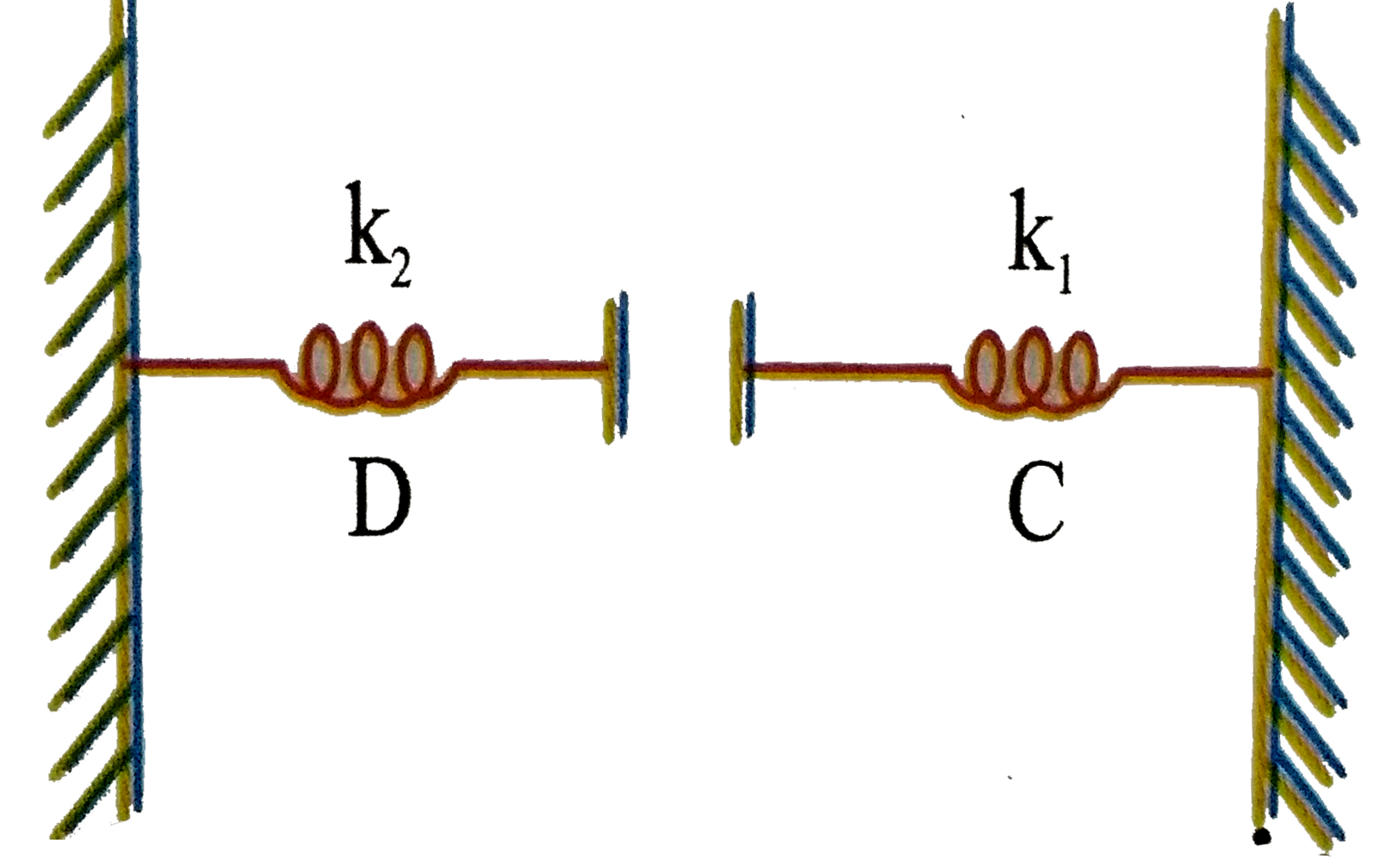 .
.
k1k2
k2k1
k1k2
None of these
The correct Answer is:B
Step by step video & image solution for In the given figure the capacitor of plate area A is charged upto charge q. The ratio of elongations (neglect force gravity) in springs C and D at equilibrium position is. . by Physics experts to help you in doubts & scoring excellent marks in Class 12 exams.
Updated on:21/07/2023Topper's Solved these Questions
Similar Questions
Two large insulating plates having surface charge densities +σ and −σ are fixed some distance apart in a gravity -free region and two ideal insulating springs of force constant k are connected to the plates as shown in the figure. A particle of charge q and mass m which is attached to the junction of the spring is released from rest, then the partice will cross its equilibrium position with a speed
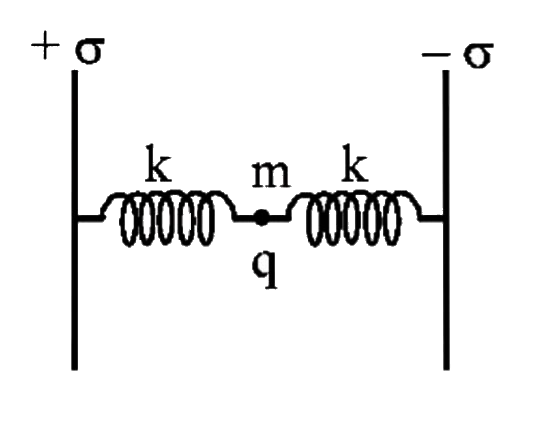
View SolutionA parallel plate capacitor having area A is given a charge +q and −q on its plates, Two plates exert force of attraction given by.........
View Solution
Knowledge Check
In the given figure a capacitor of plate area A is charged up to charge q . The mass of each plate is m2 The lower plate is rigidly fixed. Find the value of m1 so that the system remains in equilibrium -
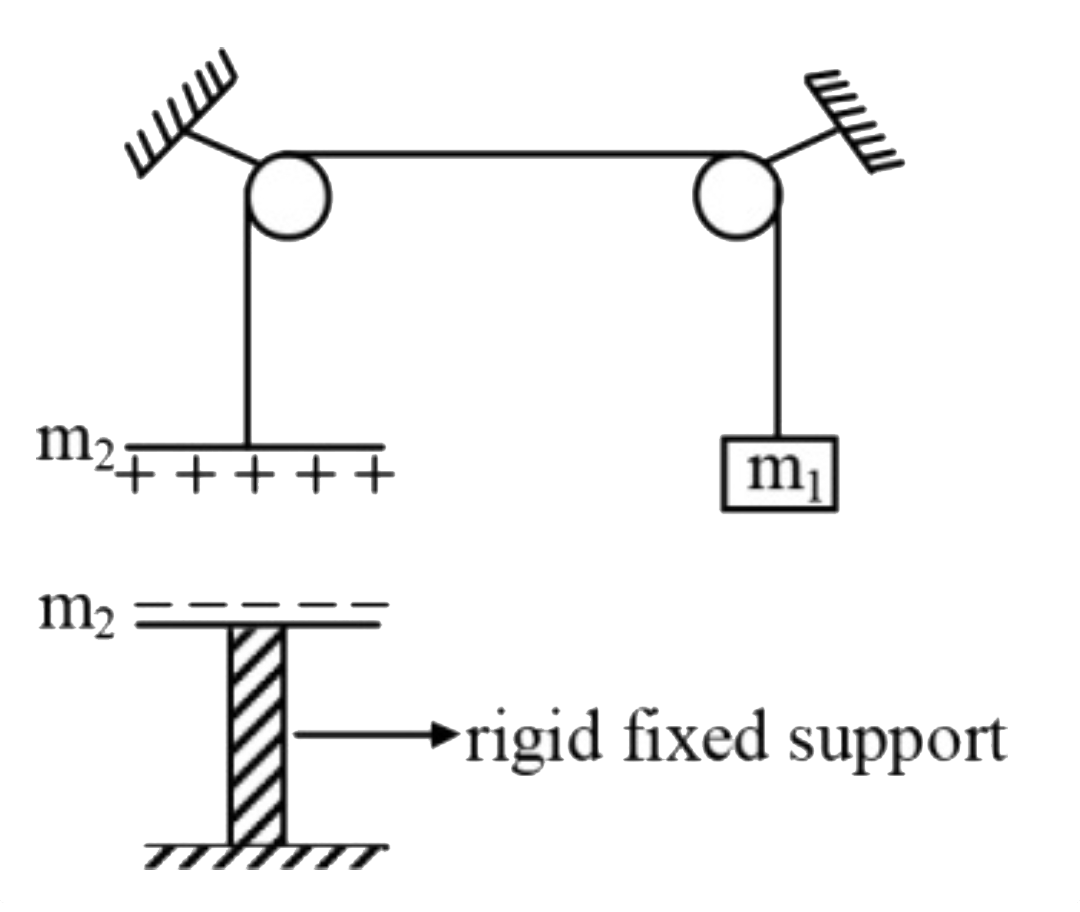 Am2+q2ε0AgBm2Cq22ε0Ag+m2D2m2
Am2+q2ε0AgBm2Cq22ε0Ag+m2D2m2In the given figure a capacitor of plate are A is charged upto charge q. The mass of each plate is m2. The lower plate is rigidly fixed. The value of m1 if the system remains in equilibrium is.
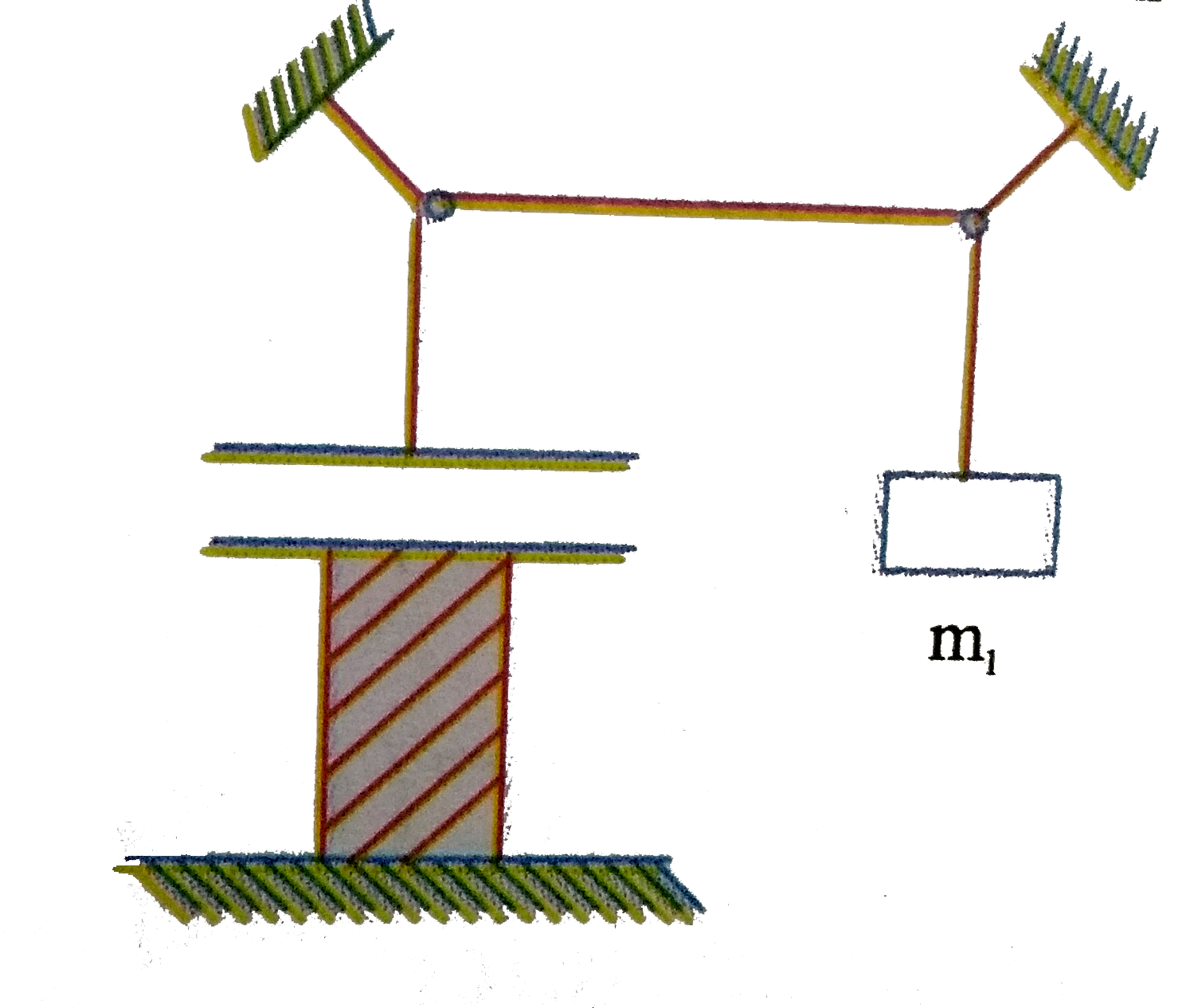 .Am2+q2∈0AgBm2Cq2∈0AgD2m2
.Am2+q2∈0AgBm2Cq2∈0AgD2m2In a parallel-plate capacitor of plate area A, plate separation d and charge Q the force of attraction between the plates is F.
AF∝Q2BF∝1ACF∝dDF∝1d
Two charged capacitors have their outer plates fixed and inner plates connected by a spring of force constant k. The magnitude of charge on each capacitor is q and sign of charge on each capacitor is q and sign of charge is shown in figure. Find the extension in the spring at equilibrium.
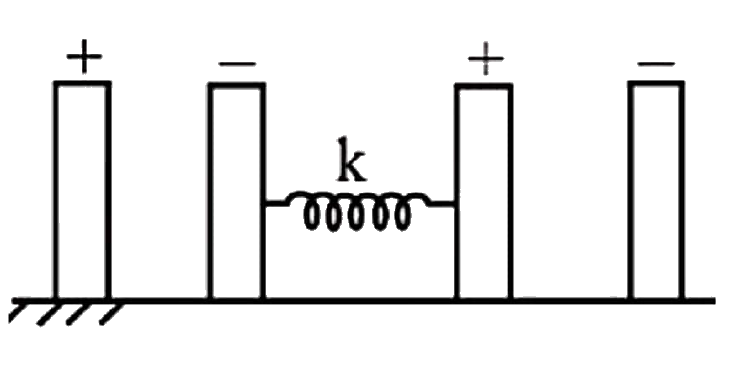
View SolutionIn a parallel plate capacitor with plate area A and charge Q, the force on one plate because of the charge on the other is equal to
View SolutionA parallel plate capacitor C has a charge Q. The actual charges on its plates are
View SolutionIf the plates of a parallel plate capacitor are not equal in area then quantity of charge
View SolutionA air filled parallel plate capacitor having circular plates of diameter D is given a charge Q.The magnitude of the force acting between plates is
View Solution
